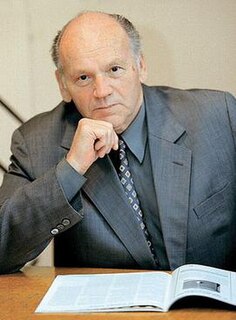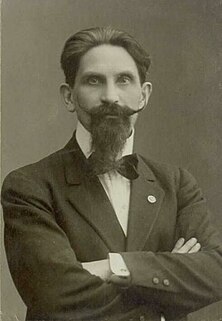The history of Slovenia chronicles the period of the Slovenian territory from the 5th century BC to the present. In the Early Bronze Age, Proto-Illyrian tribes settled an area stretching from present-day Albania to the city of Trieste. The Slovenian territory was part of the Roman Empire, and it was devastated by the Migration Period's incursions during late Antiquity and the Early Middle Ages. The main route from the Pannonian plain to Italy ran through present-day Slovenia. Alpine Slavs, ancestors of modern-day Slovenians, settled the area in the late 6th Century AD. The Holy Roman Empire controlled the land for nearly 1,000 years, and between the mid-14th century and 1918 most of Slovenia was under Habsburg rule. In 1918, Slovenes formed Yugoslavia along with Serbs and Croats, while a minority came under Italy. The state of Slovenia was created in 1945 as part of federal Yugoslavia. Slovenia gained its independence from Yugoslavia in June 1991, and is today a member of the European Union and NATO.

League of Communists of Croatia was the Croatian branch of the League of Communists of Yugoslavia (SKJ). It came into power in 1945. Until 1952, it was known as Communist Party of Croatia. In the early 1990s, it underwent several renames and lost power.

The Social Democrats is a centre-left and pro-European social-democratic political party in Slovenia led by Tanja Fajon. From 1993 until 2005, the party was known as the United List of Social Democrats. It is the successor of the League of Communists of Slovenia. As of 2022, the party is a member of a three-party coalition government with Robert Golob's Freedom Movement alongside The Left, as well as a full member of the Party of European Socialists and Progressive Alliance.
This article gives an overview of liberalism in Slovenia. It is limited to liberal parties with substantial support, mainly proved by having had a representation in parliament. The sign ⇒ means a reference to another party in that scheme. For inclusion in this scheme it isn't necessary so that parties labeled themselves as a liberal party.

The League of Communists of Yugoslavia, known until 1952 as the Communist Party of Yugoslavia, was the founding and ruling party of SFR Yugoslavia. It was formed in 1919 as the main communist opposition party in the Kingdom of Serbs, Croats and Slovenes and after its initial successes in the elections, it was proscribed by the royal government and was at times harshly and violently suppressed. It remained an illegal underground group until World War II when, after the invasion of Yugoslavia in 1941, the military arm of the party, the Yugoslav Partisans, became embroiled in a bloody civil war and defeated the Axis powers and their local auxiliaries. After the liberation from foreign occupation in 1945, the party consolidated its power and established a one-party state, which existed until the 1990 breakup of Yugoslavia.

Ivan Cankar was a Slovene writer, playwright, essayist, poet, and political activist. Together with Oton Župančič, Dragotin Kette, and Josip Murn, he is considered as the beginner of modernism in Slovene literature. He is regarded as the greatest writer in Slovene, and has sometimes been compared to Franz Kafka and James Joyce.

Jože Pučnik was a Slovenian public intellectual, sociologist and politician. During the communist regime of Josip Broz Tito, Pučnik was one of the most outspoken Slovenian critics of dictatorship and lack of civil liberties in Yugoslavia. He was imprisoned for a total of seven years, and later forced into exile. After returning to Slovenia in the late 1980s, he became the leader of the Democratic Opposition of Slovenia, a platform of democratic parties that defeated the communists in the first free elections in 1990 and introduced a democratic system and market economy to Slovenia. He is also considered one of the fathers of Slovenian independence from Yugoslavia.

The Slovene lands or Slovenian lands is the historical denomination for the territories in Central and Southern Europe where people primarily spoke Slovene. The Slovene lands were part of the Illyrian provinces, the Austrian Empire and Austria-Hungary. They encompassed Carniola, southern part of Carinthia, southern part of Styria, Istria, Gorizia and Gradisca, Trieste, and Prekmurje. Their territory more or less corresponds to modern Slovenia and the adjacent territories in Italy, Austria, Hungary, and Croatia, where autochthonous Slovene minorities live. In the areas where present-day Slovenia borders to neighboring countries, they were never homogeneously ethnically Slovene.

Ivan Tavčar was a Slovenian writer, lawyer, and politician.

The Slovene Union is a political party in Italy representing the Slovene minority in the Friuli-Venezia Giulia region. Its Slovenian language name means literally "Slovene Community", but the denomination "Slovene Union" is used in other languages.
The Autonomist Party was an Italian-Dalmatianist political party in the Dalmatian political scene, that existed for around 70 years of the 19th century and until World War I. Its goal was to maintain the autonomy of the Kingdom of Dalmatia within the Austro-Hungarian Empire, as opposed to the unification with the Kingdom of Croatia-Slavonia. The Autonomist Party has been accused of secretly having been a pro-Italian movement due to their defense of the rights of ethnic Italians in Dalmatia. The Autonomist Party did not claim to be an Italian movement, and indicated that it sympathized with a sense of heterogeneity amongst Dalmatians in opposition to ethnic nationalism. In the 1861 elections, the Autonomists won twenty-seven seats in Dalmatia, while Dalmatia's Croatian nationalist movement, the National Party, won only fourteen seats. This number rapidly decreased: already in 1870 autonomists lost their majority in the Diet, while in 1908 they won just 6 out of 43 seats.
Josip Ferfolja was a Slovene lawyer and Social democratic politician, and human rights activist from the Province of Gorizia. Although he was an Italian citizen for most of his life, he considered himself foremost a Slovenian.
Boris Furlan was a Slovenian jurist, philosopher of law, translator and liberal politician. During World War II, he worked as a speaker on Radio London, and was known as "London's Slovene voice". He served as a Minister in the Tito–Šubašić coalition government. In 1947, he was convicted by the Yugoslav Communist authorities at the Nagode Trial.

The Slovene People's Party was a Slovenian political party in the 19th and 20th centuries, active in the Austro-Hungarian Monarchy and in the Kingdom of Yugoslavia. Between 1907 and 1941, it was the largest and arguably the most influential political party in the Slovene Lands. It was dissolved by the Yugoslav Communist authorities in 1945, but continued to be active in exile until 1992, when it merged with the Slovene Christian Democrats. The contemporary Slovene People's Party, founded in 1988, was named after it.

Engelbert Besednjak was a Slovene Christian Democrat politician, lawyer and journalist. In the 1920s, he was one of the foremost leaders of the Slovene and Croat minority in the Italian-administered Julian March. In the 1930s, he was one of the leaders of Slovene anti-Fascist émigrés from the Slovenian Littoral, together with Josip Vilfan, Ivan Marija Čok and Lavo Čermelj. He is considered one of the best Slovene public speakers of the 20th century.

Josip Vilfan or Wilfan was a Slovene lawyer, politician, and human rights activist from Trieste. In the early 1920s, he was one of the political leaders of the Slovene and Croatian minority in the Italian-administered Julian March. Together with Engelbert Besednjak, Lavo Čermelj and Ivan Marija Čok, he was the most influential representative of the Slovene émigrés from the Slovenian Littoral during the 1930s. Next to Leonid Pitamic and Boris Furlan, Vilfan is considered one of the most important Slovene legal theorists of the first half of the 20th century.

Etbin Kristan was a Slovenian labour leader and Social Democratic politician and writer during the late-Austrian-Hungarian and the Yugoslav monarchy.
The Socialist Party of Slovenia was a political party in Slovenia. It was founded in 1990, as the successor of the Socialist Union of Working People of Slovenia. The founding conference of the party was held in Ljubljana on June 9, 1990. The party was led by Viktor Žakelj and Ciril Zlobec.

Valentino Pittoni was a socialist politician from Trieste, who was mainly active in Austria-Hungary. As a follower of Austromarxism and militant of the Social Democratic Workers Party of Austria (SDAPÖ), he came to oppose both Italian irredentism and Slovenian nationalism. In the early 20th century he emerged as the key leader of the socialist movement in the Austrian Littoral region. Pittoni represented Trieste in the Imperial Council, where he became known as a proponent of electoral democracy, and was additionally a member of Trieste's Municipal Council. He set up a cooperative movement, as one of several ventures ensuring inter-ethnic solidarity in the Littoral.
The Social Democratic Party of Croatia and Slavonia was a social-democratic political party in the Kingdom of Croatia-Slavonia. The party was active from 1894 until 1916.















